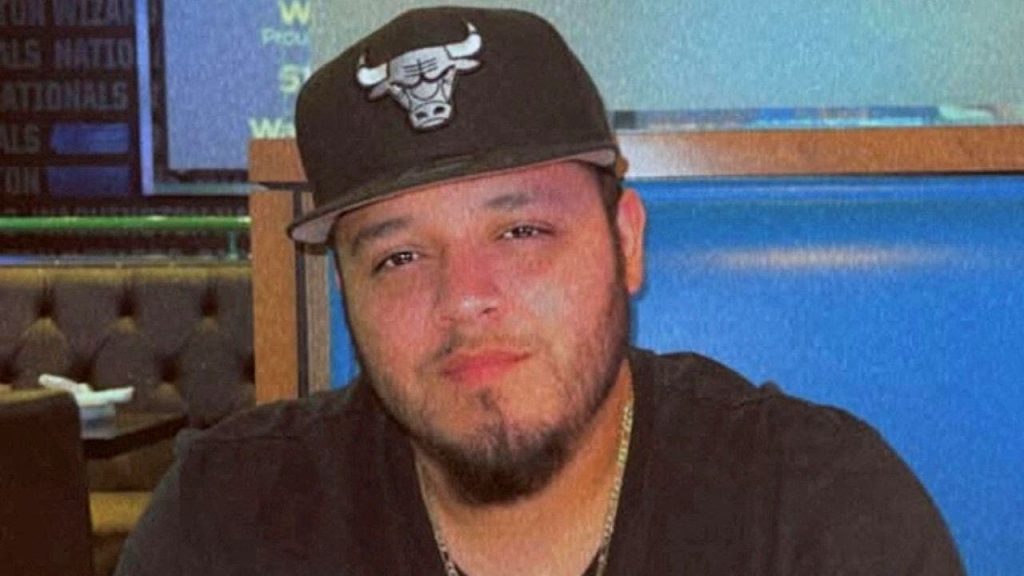In a dramatic turn of events, Kilmar Armando Abrego Garcia, a Salvadoran national previously deported from the U.S., has returned to American soil in handcuffs to face serious federal charges. Announced by Attorney General Pam Bondi, Garcia is facing indictment for human smuggling and conspiracy. The indictment alleges that Garcia was a key player in a smuggling ring that operated for nearly a decade, trafficking women, children, and gang-affiliated individuals throughout the United States.
| Article Subheadings |
|---|
| 1) Background on Kilmar Abrego Garcia |
| 2) The Human Smuggling Indictment |
| 3) Law Enforcement and Garcia’s Arrest |
| 4) Political Reactions and Legal Implications |
| 5) Future of Kilmar Abrego Garcia in the U.S. |
Background on Kilmar Abrego Garcia
Kilmar Armando Abrego Garcia, a 29-year-old Salvadoran national, has been at the center of a significant legal controversy surrounding immigration and crime. Prior to his deportation, Garcia had reportedly entered the United States illegally in 2011 and was subject to an order of removal in 2019. Although the specifics of his initial entry remain unclear, it is evident that Garcia became involved in criminal activities that would ultimately lead to his legal troubles.
His return to the U.S. comes amidst considerable political debate regarding immigration policies and the treatment of individuals accused of serious crimes. Garcia was reportedly deported to El Salvador earlier this year but was swiftly returned to the U.S. to face charges after law enforcement presented an arrest warrant based on allegations of human trafficking and criminal conspiracies.
The Human Smuggling Indictment
The sealed indictment against Garcia highlights the severity of the allegations against him. According to Attorney General Pam Bondi, he had played a “significant role” in an extensive human smuggling ring that operated for nearly a decade. Reportedly serving as a full-time smuggler, Garcia is accused of more than 100 trips transporting women, children, and individuals affiliated with gangs like MS-13 across various states.
The indictment includes two felony counts, with serious implications regarding the exploitation of children and trafficking in firearms and narcotics. Furthermore, the investigation has revealed troubling claims that Garcia solicited explicit images of minors and was allegedly involved in violent activities, including the murder of a rival gang member’s mother.
Law Enforcement and Garcia’s Arrest
Garcia’s capture can be traced back to law enforcement intelligence and a 2022 traffic stop by the Tennessee Highway Patrol. During the traffic stop, Garcia was pulled over for speeding, and officers found him in a vehicle with eight other men. This raised immediate suspicions among the officers, prompting a deeper investigation into his activities.
During the encounter, officers discovered $1,400 in cash, which further raised their suspicions. After checking his status in the National Crime Information Center, authorities flagged him due to a gang/terrorism alert linked to his name. However, despite their concerns, Immigration and Customs Enforcement (ICE) was reportedly not responsive at that time.
Political Reactions and Legal Implications
The recent developments regarding Garcia have reignited political discourse around immigration policies, notably during the Trump administration. Several politicians on the left have expressed their dissatisfaction with the handling of Garcia’s legal situation, particularly following his initial deportation. For instance, Democratic Senator Van Hollen criticized the administration over its actions, suggesting that it undermined constitutional rights.
In contrast, members of the Trump administration celebrated Garcia’s upcoming trial as a victory for law enforcement and U.S. immigration policy. Statements issued by officials stressed that the indictment confirms the gravity of Garcia’s alleged actions and highlighted a clear distinction between advocacy for human rights and ignoring serious criminal behavior.
Future of Kilmar Abrego Garcia in the U.S.
With multiple serious charges pending, the future of Kilmar Abrego Garcia in the United States remains uncertain. He is set to face federal trial with the possibility of significant prison time if convicted. According to reports, upon serving his sentence, Garcia may be returned to El Salvador permanently. This dual approach addresses both the need for justice for his victims and the growing concerns over human trafficking.
The U.S. legal system’s handling of cases like Garcia’s illustrates the complexities involved in immigration law and enforcement. The balance between upholding the law and addressing humanitarian concerns is increasingly becoming a focal point in national discussions about immigration policy and public safety.
| No. | Key Points |
|---|---|
| 1 | Kilmar Abrego Garcia has been indicted for human smuggling and conspiracy. |
| 2 | He has a significant history of illegal activities, including trafficking women and children. |
| 3 | His prior deportation has sparked controversy regarding immigration enforcement practices. |
| 4 | Political reactions have highlighted the ongoing debate about immigration policy in the U.S. |
| 5 | The case is indicative of broader issues surrounding human trafficking and public safety. |
Summary
The return of Kilmar Abrego Garcia to the U.S. to face charges of human smuggling and conspiracy underscores significant issues regarding immigration and law enforcement. The case highlights the complexities surrounding the handling of illegal immigration, human trafficking, and the safety of vulnerable populations. As legal proceedings commence, the ramifications on U.S. immigration policy, political dialogue, and public perception will continue to evolve.
Frequently Asked Questions
Question: What charges is Kilmar Abrego Garcia facing?
Kilmar Abrego Garcia is facing federal charges for human smuggling and conspiracy, including trafficking minors and engaging in violent criminal activities.
Question: Why was Garcia deported previously?
Garcia was deported due to his illegal entry into the U.S. and a prior removal order issued in 2019 related to his criminal record.
Question: What political implications does Garcia’s case have?
Garcia’s case has sparked debate about immigration policies, due process, and the balancing of public safety against humanitarian concerns in the U.S.


